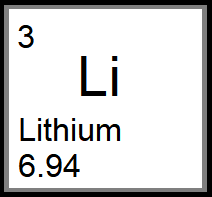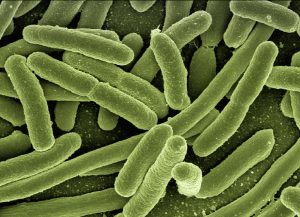The first ever conference on low-dose lithium in medicine is taking place April 17th-18th, 2021. Low-Dose Lithium Online Symposium 2021 | Psychiatry Redefined
Lithium and Alzheimer’s Prevention

When most people think of lithium, they think of a side-effect riddled medication for the treatment of serious mental health conditions. However, the story of lithium is much more nuanced than the mineral’s somewhat negative reputation.
Lithium is a Nutrient
While still not officially recognized as such, research for a number of years has suggested that lithium is a required nutrient. Many foods and drinking water often contains small amounts of the mineral. In animal research, when rats and goats are fed a diet without lithium, they show reproductive irregularities and increased mortality (Schrauzer 2002). While research in humans is limited, data strongly suggests that small amounts of lithium found in local water supplies can decrease suicide risk and positively affect mental health (Eyre-Watt 2021). Some studies have even suggested a recommended minimum intake of lithium: one milligram per day.
Lithium’s Effects on the Body
As a nutrient, lithium has a complex web of interactions within the body that are still not fully understood. Due to the similarity in size, it appears to inhibit several enzymes involved in cellular regulation by replacing magnesium (Brown 2013). In general, lithium appears to have anti-inflammatory properties and to support production of neuronal growth factors that support brain health (Damri 2020). This combination of activity, at least partly explains lithium’s benefits for mental health conditions and has led researchers to explore its use in other neurological conditions like dementia.
Lithium and Alzheimer’s Disease
Bipolar disorder is often a devastating condition. Unfortunately, research shows that bipolar disorder triples the risk for cognitive decline and dementia. However, when patients struggling with bipolar are prescribed lithium for long-term management, risks for dementia decrease by 49% (Velosa 2020). Due to these results, research has been moving towards understanding how lithium appears to improve brain function.
Early clinical trials using lithium to treat Alzheimer’s dementia have been somewhat mixed. One study showed improvement in cognitive performance with lithium treatment (Forlenza 2011). Another study showed no benefit, however, a specific subset of patients at one clinical site did show significant improvements (Hampel 2009, Leyhe 2009).
Low-Dose Lithium

Lithium has a narrow therapeutic window for bipolar treatment. In other words, the effective dose is high and close to the toxic dose. As such, blood monitoring of lithium levels is required to make sure patients do not get too much lithium and become toxic.
Previous research, as we already mentioned, has shown that small doses of lithium can still have benefits for mental health. Drinking water studies have shown that lithium in the microgram range still has benefits (Liaugaudaite 2019). These doses are around one thousand times less than standard treatment doses and do not require blood monitoring.
Recognizing benefits from such low amounts, researchers have also explored low-dose lithium as a treatment for dementia. Using low doses, you virtually eliminate any risk of side effects. One study explored using 300 micrograms of lithium daily to treat dementia patients for 15 months. With lithium, the treatment group maintained their current level of cognitive function while the control group continued to experience cognitive decline (Nunes 2013).
Conclusion
While the initial results are exciting, we need more research to confirm the benefits from lithium for dementia. It’s worth noting that while micro-doses show benefits, cognitive improvement was only stabilized, not improved. With higher doses, some studies did find cognitive improvement. It seems likely that dosing in between the two levels might provide the most benefits with the least side effects. More research is needed to best understand the use of lithium as a potential preventative therapy for Alzheimer’s disease and dementia.



